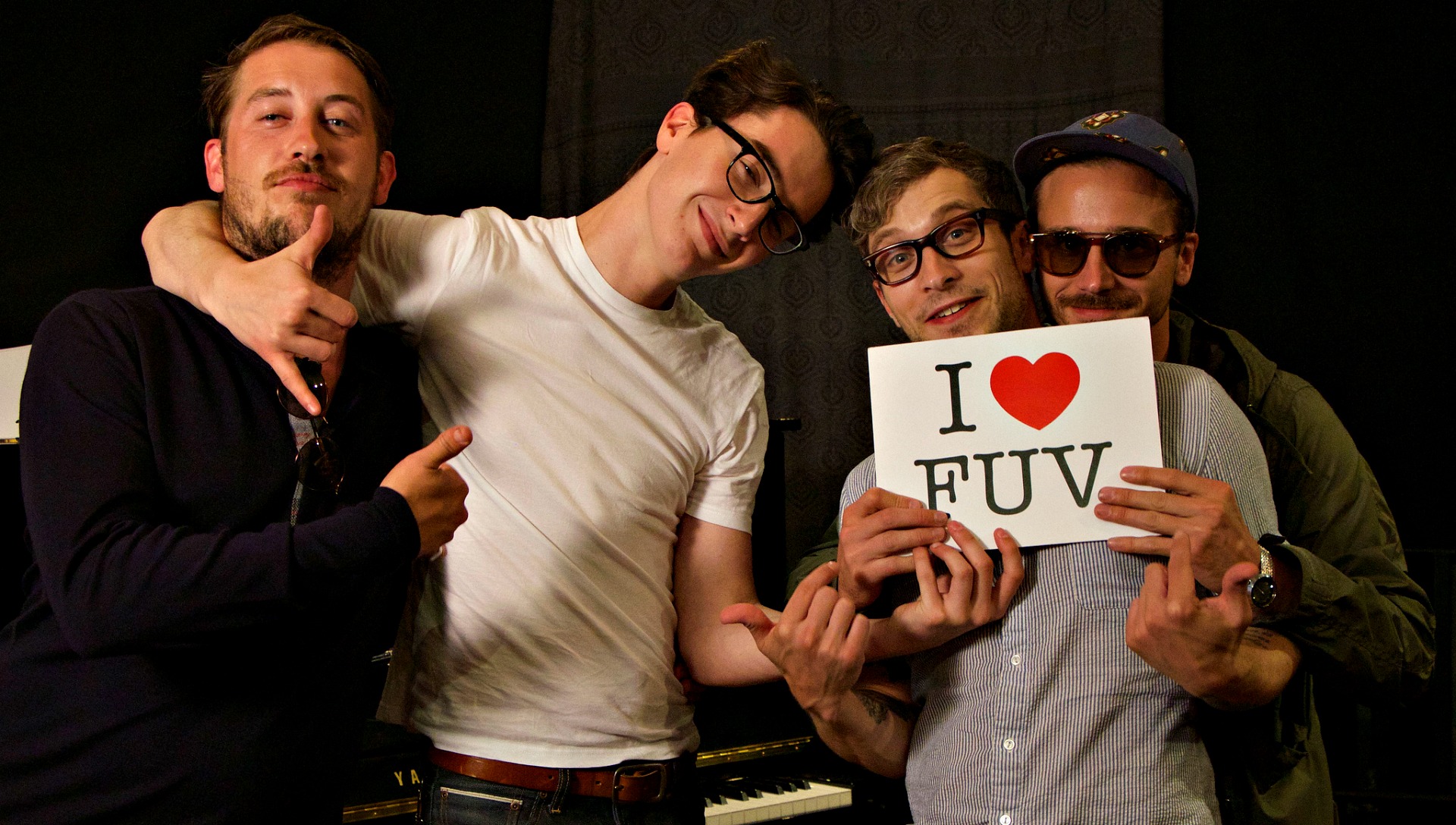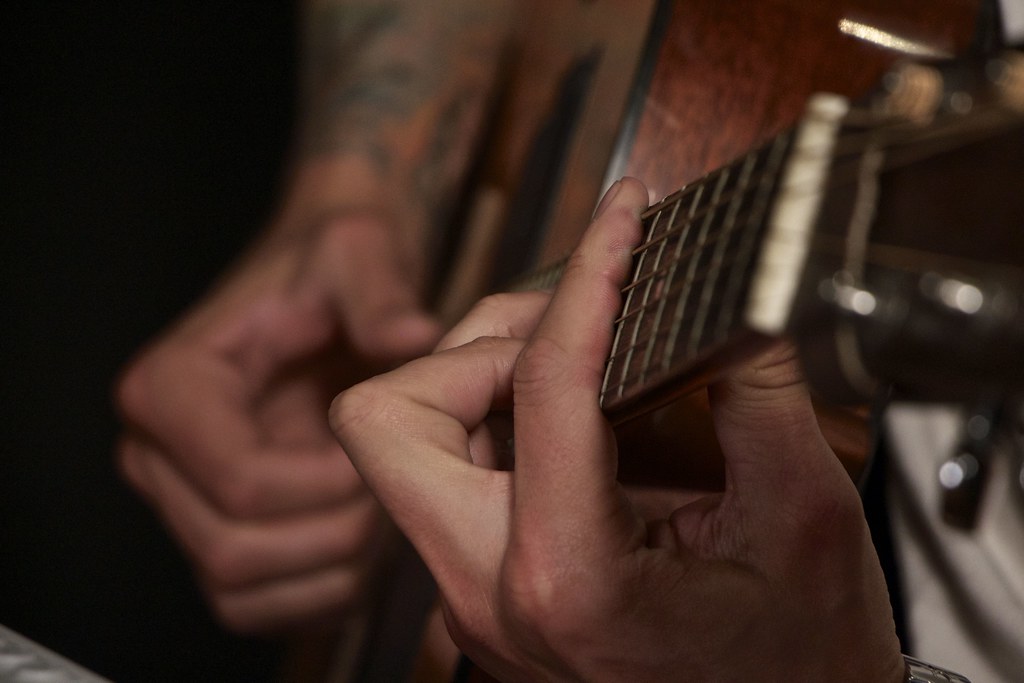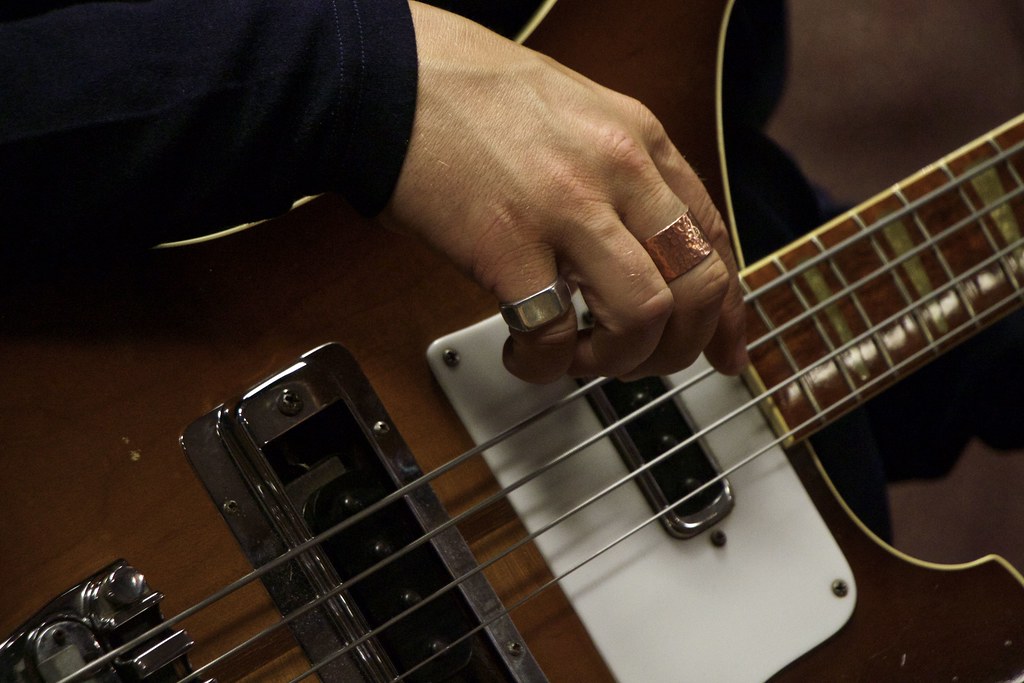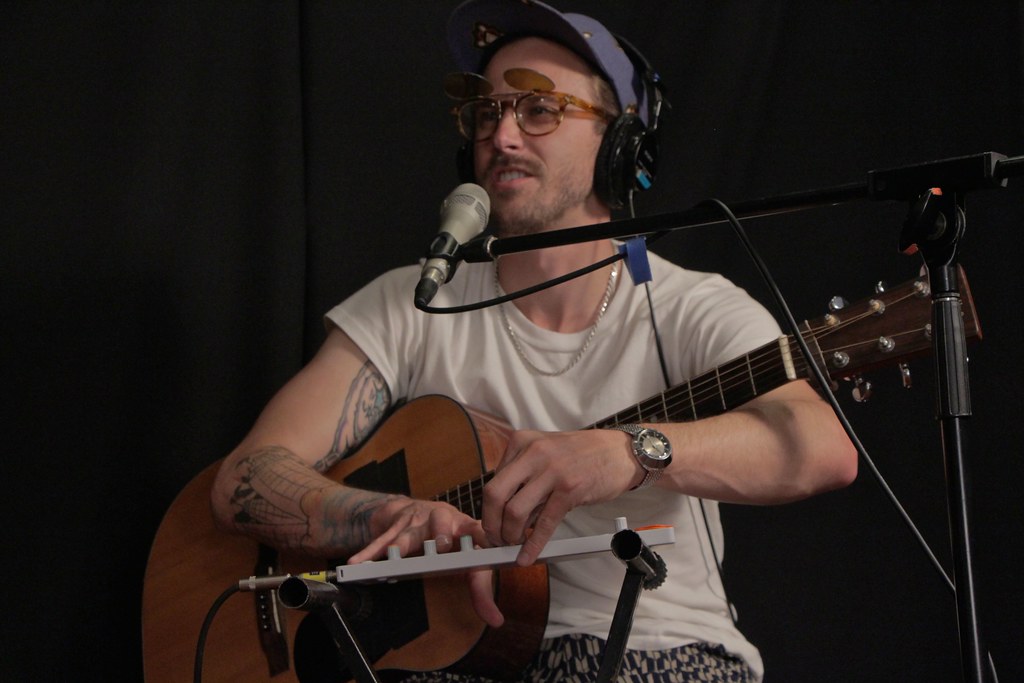Portugal.The Man: TAS In Session

Portugal.The Man's seventh full-length album, Evil Friends, is released this week amid some fanfare. While the band still clings to a certain DIY rigor, it's indisputable that working with producer Danger Mouse — and finding a major label home on Atlantic Records — takes the group to a different level.
Curiously, Portugal.The Man had some trepidation about working with the Grammy-winning producer, a conundrum which frontman John Gourley frankly discussed in a recent conversation with The Alternate Side's Alisa Ali.
The group — Gourley, bassist Zach Carothers, keyboardist Kyle O'Quin and drummer Kane Ritchotte — performed three tracks from Evil Friends for The Alternate Side and FUV Live. Watch videos of Portugal.The Man live in Studio A, read highlights from the interview and listen to band's session in the FUV Vault.
Alisa Ali: Have you ever been to Portugal?
John Gourley: Yeah, we went once. I guess it was three or four years ago now. We played with Peaches and Nine Inch Nails.
Alisa: That’s awesome!
John: We became friends with Peaches and her band. She lives in Berlin and every time we go to Germany we end up hanging with them at this bar called White Trash. It’s fitting. The atmosphere in this bar … it’s kind of a cool hang.
Alisa: You’ve just released your seventh full-length album Evil Friends. Do you count Zach, Kyle and Kane as your evil friends? Or is this more your Alaska friends?
John: I’ve been thinking about this since we’ve been asked about the title. I was in the middle of this conference call and somebody said, “What’s the name of the record?” I was way behind on turning things in and working on artwork. And I just said, Evil Friends. It just stuck. The chorus of “Evil Friends” and the bridge of “Creep in a T-shirt” are the same lyrics and they were actually the placeholder lyrics for the entire album. It just stuck in those two songs and ended up being the record title as well.
Alisa: There’s a lot of devil references in all of your music or involve the devil, God or sinning.
John: It’s just all about contrast. [Like] naming our pop record The Satanic Satanist. When we made that album, we were just sitting back going, “How do I write the music that we grew up listening to? How do I write a song that’s three minutes long?” To me, that's seriously difficult. Anybody can put a bunch of pedals on a board and run noises through it and call it experimental, but I think writing songs is really difficult. Within that, you have to find contrast. You have to find dynamics. It’s something that doesn’t exist as much in music today. It just doesn’t. Everything’s really compressed and you have to get those sounds and that look as well. The aesthetic can counter the music just as easily as the lyrics can.
Alisa: Did you grow up religious at all?
John: No. Grew up around it. I’m fine. Whatever anyone wants to do, I don’t care.
Alisa: Do you do the artwork for all of the records?
John: Yeah, I’ve done all of the artwork with my friend Austin Sellers in Portland. I failed every art class I was in. I dropped out of high school. This isn’t great to say ... I feel like education is really important and I continue to read and practice things the way they work best for me. A lot of people work in trade; you learn a skill. That’s what I did. With the art, we couldn’t afford to hire someone. There’s artists I really wanted to work with us, but it never really panned out moneywise. So I started doing the art and I’m really glad I did.
Alisa: The video for “Purple Yellow Red and Blue” is pretty awesome. Can you describe it?
John: Yeah, we shot the video out in New Jersey. We came out with our friends That Go - Stefan Moore and Noel Paul — and our buddy MIchael Ragen who has directed a lot of our videos. He’s been the DP on pretty much every video we’ve had since Censored Colors. He’s a funny dude. I talk to him every day.
Alisa: It’s got a creepy, eerie vibe to it.
John: Yeah, definitely. That’s That Go. The director always has a treatment. The way I look at these things you need someone to direct it; you can’t be on both sides of the camera.
Alisa: You guys are pretty prolific. Or do you feel a little self-conscious about using that term?
John: The reality is that we were just recording every year. We’d break in the winter, go to Alaska, and we’d record music when we got back. That’s just how we did it. Again, it was like learning a trade. You have to do it all the time to progress, grow and learn. I feel like every record we put out is like a debut album. New band. It really is.
Alisa: You still feel good about all of the records? You have a ton of EPs out as well.
John: I feel like this band has been so lucky to have the freedom that we do. I love Atlantic Records, that is the coolest thing that we’ve done. Being part of that label and history is amazing. But we got there, I feel, because we didn’t stick to any genre. We’re not just a rock or pop band. It’s whatever we want to do. That’s David Bowie. The Beatles.
Alisa: You worked with Brian Burton, aka Danger Mouse, on this record. He’s such a nice guy. I understand that you were going to forego a producer, you went into a Texas studio, and then midway you got a call that Brian wanted to work with you guys.
John: It was more like, “Brian wants to talk about possibly working together at some point.” I was actually put off …
Alisa: Why?
John: We were in the middle of this record. We felt, “You guys trust us, let us do it.” But we’re not idiots. It’s Brian. He’s amazing. I’m a huge fan of his. [The label] calling me in that situation took so much pressure off of the situation because I was kind of annoyed, but I went out and he said, “Hey man, just so you know, I don’t want to work with another band. I worked with the Black Keys” — that’s the amazing thing about Brian, he’s very hands on. He’s a good dude and loyal to what he’s doing and wants to make the best music he can. So the Black Keys — that just levelled everything right there. I was like, “Whoa, great, because we’re already working on a record, we don’t have to talk about it, let’s listen to music and hang.” As I was walking out, he’s like “We should probably make a record together.” I called the guys and said, “I think he wants to work on a record?” I wasn’t sure.
Alisa: You ended up scrapping a lot of the songs you had worked on.
John: Oh we’d only finished two. When we work on albums, it’s music first and, the last two weeks, I do all the lyrics and most of the melodies. We’ll have some placeholders, but it all comes together in the last two weeks. And he hit us up right before the last two weeks. I’m glad he did. It’s really cool. It’s nice to have someone who can say “no” in a positive way. Or who can stand up and play something. There’s nothing worse than getting “no” and then no example of what you’re doing wrong or how to improve.
Alisa: Did Danger Mouse have any specific touches? Can we hear them on “Sea of Air” at all?
John: We finished “Sea of Air” before we went in with him. We definitely changed some things … it’s all vibes. We pitched that song down. One of the coolest things about Pro-Tools and working in digital music is the options that you have. It’s pretty endless. I think we played some things on tape and some on Pro-Tools and we pitched the whole song down three-and-a-half steps, which is a lot. It sounds like the same song, but there’s something different about it. Hearing my range, Danger Mouse would tell me to sing higher or lower. I wrote “Hip Hop Kids” when we were on tour with the Black Keys. And Patrick [Carney] is probably the person who put in my head that Brian might be a good producer for us. It was [initially] out of the question for me — he’s Danger Mouse! We’re not going to get him.
Alisa: But, hello, you’re touring with the Black Keys. That’s how I assumed you made the Brian Burton connection.
John: It didn’t come together until about a month after that. But I think Patrick had shown him some stuff, but Brian knew all the records. One of the funniest things we talked about was his perception of the band before he came on. In his mind, we were a noisier, heavier band. I don’t know why that stuck in his head. Maybe because of "The Satantic Satanist" or “Evil Friends” as song titles. That stuff might throw people off.













